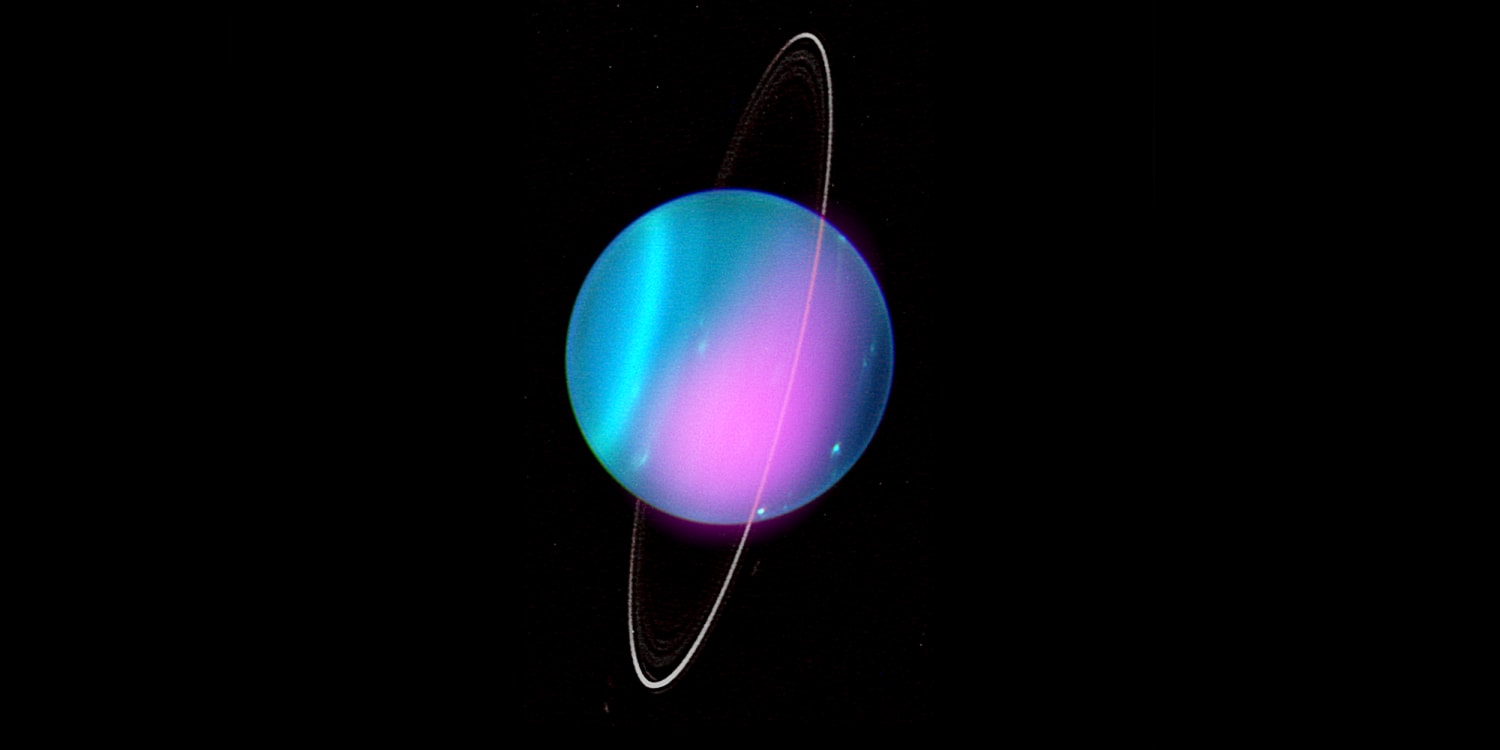For the first time, scientists have discovered X-rays emitting from the enigmatic planet Uranus.
The study published in the Journal of Geophysical Research on Wednesday examined two visuals of the planet taken by the Chandra Observatory in 2002 and 2017. The first observation revealed a clear detection of X-rays, and the second revealed a possible flare of X-rays on the ice giant, a planet mainly composed of elements heavier than hydrogen and helium.
The culprit? “Mainly the sun,” NASA said in a on its website.
But, the agency said, “there are tantalizing hints that at least one other source of X-rays is present.”
“One possibility is that the rings of Uranus are producing X-rays themselves, which is the case for Saturn’s rings,” the agency said. “Another possibility is that at least some of the X-rays come from auroras on Uranus, a phenomenon that has previously been observed on this planet at other wavelengths.”
X-rays can offer unique insights into the characteristics of the solar system. For Uranus, the research’s authors said those characteristics can include “atmospheric, surface and planetary ring composition.”
Astronomers have previously observed scattered X-ray lights given off by the sun on both Jupiter and Saturn, but not on the ice giants Uranus and Neptune, according to NASA. The agency said the planet was particularly interesting because of its “unusual orientations of its spin axis and its magnetic field.”
NASA said determining the sources of the X-rays from Uranus could help astronomers better understand how more mysterious objects in space emit X-rays, including “growing black holes and neutron stars.”
Uranus, about four times the diameter of Earth, is the seventh planet from the sun. It is distinctly known for its two sets of rings around its equator, and its side rotation — making it unique among the other planets in the solar system.
Source: | This article originally belongs to Nbcnews.com










